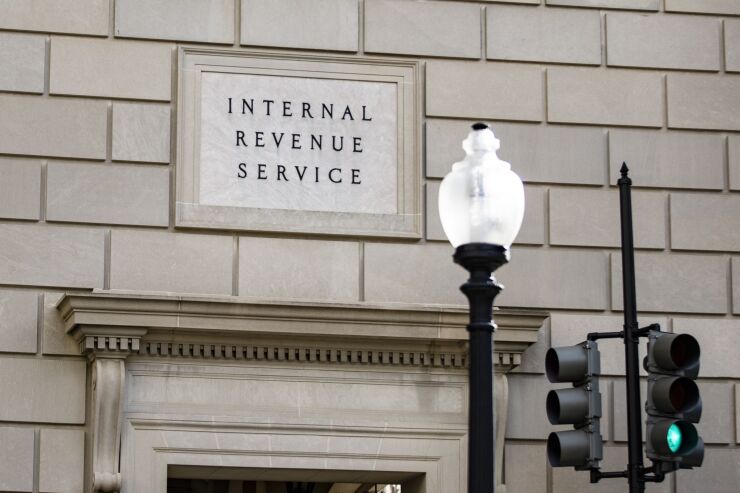The Treasury Department and the Internal Revenue Service are planning to withdraw regulations that labeled basis-shifting transactions among partnerships and related parties as "transactions of interest" akin to tax shelters and stop imposing penalties on them.
In
The notice provides immediate relief from penalties under Section 6707A(a) to participants in transactions identified as transactions of interest in the Basis Shifting TOI Regulations that are required to file disclosure statements under Section 6011, and (ii) penalties under Sections 6707(a) and 6708 for material advisors to transactions identified as transactions of interest in the basis-shifting regulations that are required to file disclosure statements under § 6111 and maintain lists under Section 6112.
The notice also withdraws Notice 2024-54, 2024-28 I.R.B. 24 (Basis Shifting Notice), which describes certain proposed regulations that the Treasury Department and the IRS intended to issue addressing partnership related-party basis-shifting transactions.
The
The IRS and the Treasury acknowledged in Thursday's notice that it had heard similar objections. "Taxpayers and their material advisors have criticized the Basis Shifting TOI Regulations as imposing complex, burdensome, and retroactive disclosure obligations on many ordinary-course and tax-compliant business activities, creating costly compliance obligations and uncertainty for businesses," said the notice.
It cited an
Last June, former IRS Commissioner Danny Werfel announced a
"Our announcement signals the IRS is accelerating our work in the partnership arena, an arena that has been overlooked for more than a decade with our declining resources," said Werfel during a press conference last year. "We're concerned tax abuse is growing in this space, and it's time to address that. So we are building teams and adding expertise inside the agency so we can reverse these long-term compliance declines."
Using complex maneuvers, high-income taxpayers and corporations would strip the basis from the assets they owned where the basis was not generating tax benefits and then move the basis to assets they owned where it would generate tax benefits without causing any meaningful change to the economics of their businesses. The basis-shifting transactions would enable closely related parties to avoid paying taxes. The Treasury estimated last year that the transactions could potentially cost taxpayers more than $50 billion over a 10-year period.
"For example, a partnership might shift tax basis from a property that does not generate tax deductions, such as stocks or land, to property where it does, like equipment," said former Deputy Secretary of the Treasury Wally Adeyemo during the same press conference. "Businesses have also used these techniques to depreciate the same asset over and over again."
Congress has since removed much of the extra funding from the Inflation Reduction Act that was being used to scrutinize such transactions, and the IRS has been
Senate Finance Committee ranking member Ron Wyden, D-Oregon, blasted the move to remove the regulations. "This is a ridiculous loophole that allows the ultra-rich to dodge taxes by shifting assets around on paper while adding zero value to our economy whatsoever," he said in a statement.






